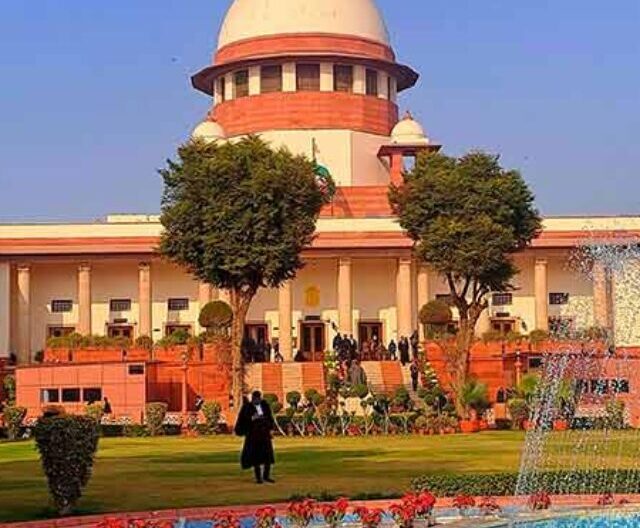
The Supreme Court resumed its hearing on the worsening air pollution crisis in Delhi and the NCR region, stressing the immediate need for action on multiple fronts. The Court emphasized the urgency of enforcing pollution control measures. For a detailed account of the Court’s observations, read inputs from Special Correspondent Sambhav Sharma.
GRAP-4 Implementation Under Scrutiny
The Delhi government’s lawyer informed the Court that the AQI (Air Quality Index) in the region had reached alarming levels, prompting the imposition of Stage 4 of the Graded Response Action Plan (GRAP). However, the Court was taken aback when it was revealed that construction activities had not been halted, despite this level of air pollution.
The bench expressed its frustration, asking, “What are you saying?” and called for the Secretary-General to be summoned immediately. The Court then ordered all construction activities in the NCR region to be halted, emphasizing the importance of strictly enforcing the GRAP-4 rules.
School Closures and Precautionary Measures
The Delhi government lawyer also reported that all schools in Delhi had been closed, except for classes 10 and 12, which continued due to upcoming board exams. Amicus Curiae Aparajita added that GRAP-4 had been implemented based on data from the Central Pollution Control Board (CPCB), but noted that a western disturbance was causing weather changes, which could worsen pollution levels in the coming days.
The Court directed the Delhi government to file an affidavit by Friday outlining the steps taken to address the pollution crisis. Further, it ordered all states in the NCR region to implement Stage 4 of GRAP strictly and form teams to monitor compliance.
Further Directions for State Governments
The Court specifically instructed the NCR state governments (Delhi, UP, Punjab, Haryana) and the Union of India to take immediate action on the measures outlined in Stage 4 of GRAP and report back to the Court before the next hearing. Additionally, it ordered the establishment of grievance redressal mechanisms to address violations of pollution control measures.
The CAQM (Commission for Air Quality Management) was directed to act swiftly on complaints regarding pollution control violations.
Stubble Burning and Satellite Surveillance
In a significant development, the Court was informed that a South Korean satellite had captured images of stubble burning in the region, a major contributor to the pollution. The Court directed the Centre and CAQM to collect data from various satellite sources, including South Korean satellites, to monitor stubble burning activities in real time.
Immediate Action for Schools and Grievances
The Court also ordered that physical classes in schools up to class 8 be immediately suspended in all NCR states to curb exposure to hazardous air quality. Additionally, it instructed authorities to ensure that violations of pollution measures be reported through the grievance redressal mechanism, with immediate investigation by CAQM.
Conclusion
The Supreme Court has made it clear that Stage 4 of GRAP will remain in effect, even if AQI levels fall below 450, until further orders. With these strict directives, the Court is pushing for urgent and comprehensive action to combat the pollution crisis and protect public health in Delhi-NCR.




